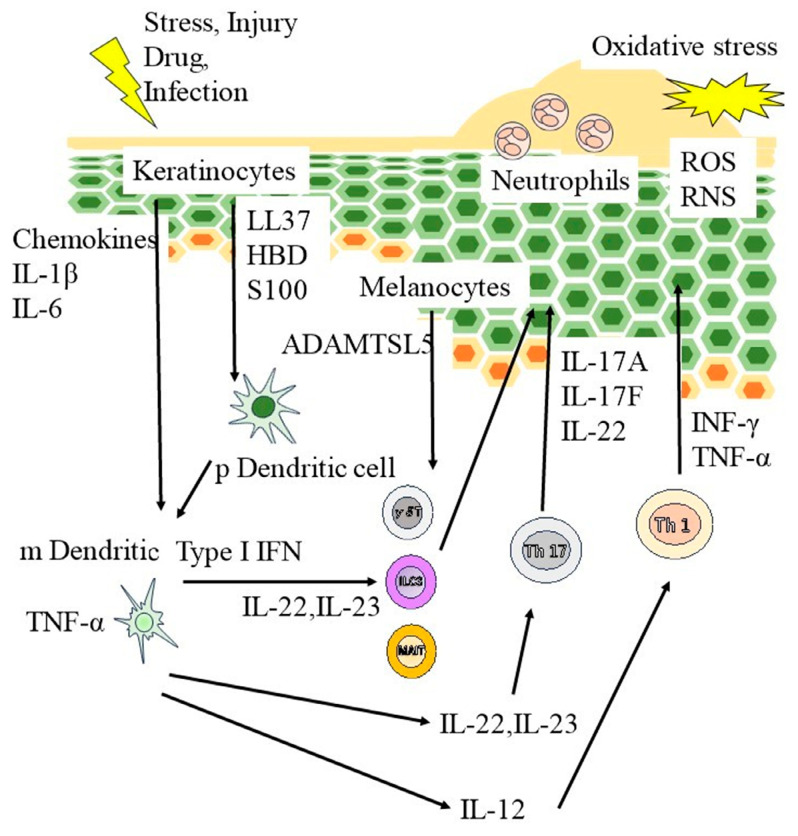Figure 1.
Pathogenesis of psoriasis. External trauma or infection triggers the assembly of host cell–derived nucleotides with keratinocyte-derived antimicrobial peptides to form a complex that triggers the expansion of antigen-specific T lymphocytes in the skin as well as lymph nodes following the activation of antigen-presenting cells. Type I interferons (IFN) are produced by plasmacyte dendritic cells and induce myeloid dendritic cells to secrete interleukin (IL)-23 and tumor necrosis factor (TNF)-α. These cytokines help Th17 cells produce more IL-17 and IL-22, enhancing the inflammatory response in the epidermis and stimulating keratinocyte proliferation. RNS, reactive nitrogen species; ROS, reactive oxygen species.

